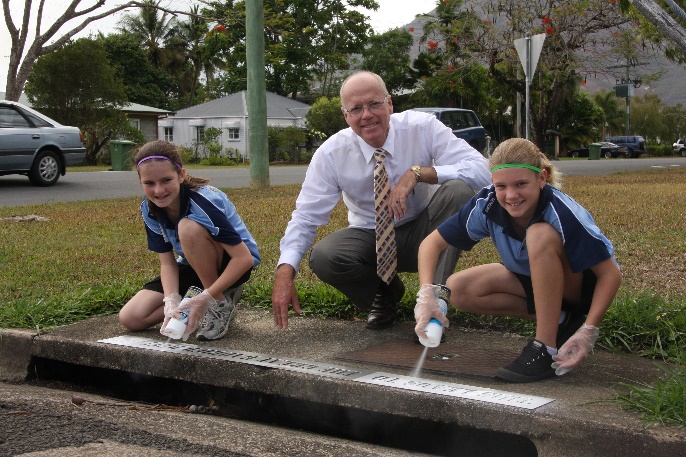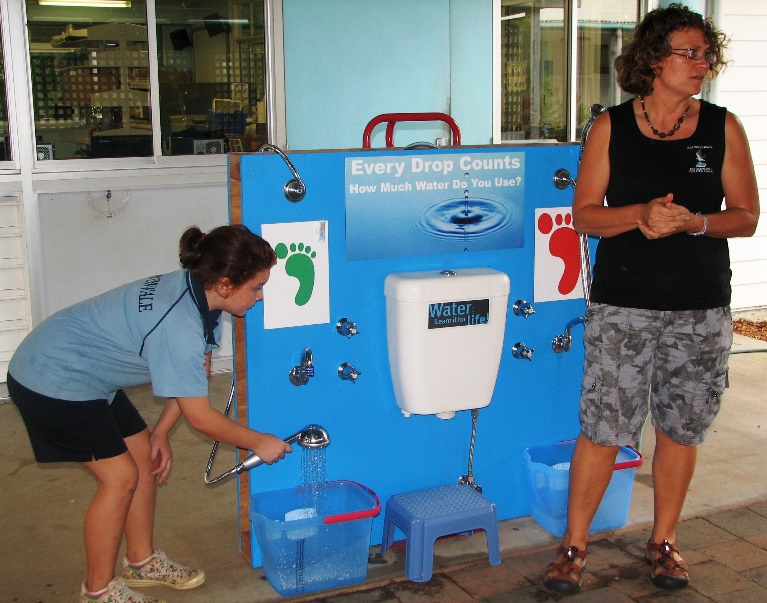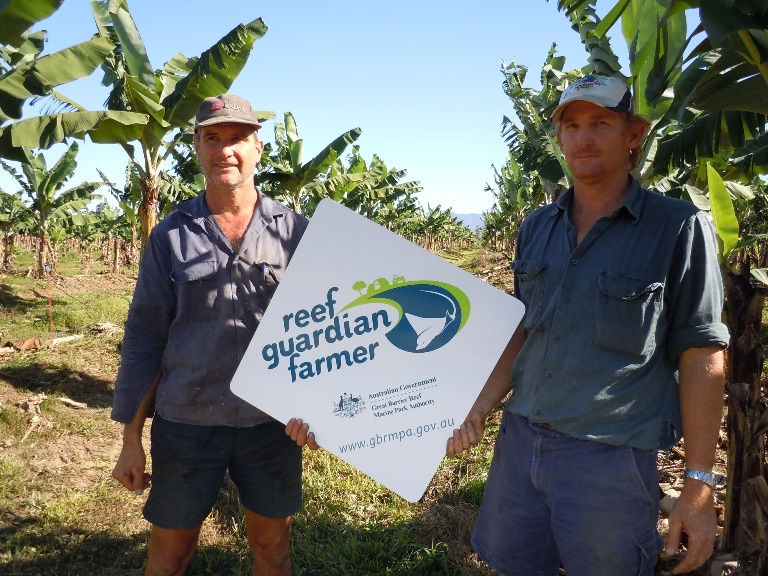Partnerships with key sectors to enhance management efforts
Reef Guardian School students doing their bit to look after the Reef – here they apply a stencil to show that anything entering this drain will end up in the Great Barrier Reef.
Gordonvale school students demonstrate water saving methods to their fellow students as part of their Reef Guardians Schools program.
These banana farmers have signed up to be part of Reef Guardian Farmers program to help protect the GBR and its associated ecosystems from land-sourced water quality issues.
A range of partnerships have been established to assist with GBR management efforts; these include:
-The Reef Guardian Schools (RGS) program began in 2003. Today it involves >120,000 students from 276 schools (i.e.10% of the entire population of the GBR catchment undertake stewardship programs as part of a RGS).
-The RGS initiative was expanded in 2007 to include Reef Guardian Councils (i.e. local government councils). Currently, 16 councils along the GBR Coast demonstrate their commitment to improve the health and resilience of the GBR through such actions as sewerage treatment, storm water treatment, waste reuse/recycling and community education.
-In 2010 the program was again expanded to include Reef Guardian Farmers and Reef Guardian Fishers. While still only pilot programs, the Fishers and Farmers programs help promote other initiatives being undertaken by these industries while also delivering environmental benefits.
Other partnerships include:
-The marine tourism industry is a key partner in GBR management, enhancing visitor experiences and helping to protect the biodiversity that supports their industry.
-The GBR aquarium supply fishery developed a world’s-first Stewardship Action Plan including collection standards
• One object of the GBRMP Act is “encourage engagement in the protection and management of the GBR by interested persons and groups, including … communities, Indigenous persons, business and industry” (s. 2A (2b)).
• Article 5 of the World Heritage Convention obligates nations who are signatories to the Convention, ”… so far as possible… to adopt a general policy which aims to give the cultural and natural heritage a function in the life of the community …”.
• Getting local communities involved in GBR protection and management, and developing partnerships with schools, councils and industries are some of the real success stories in the GBR.
• All the Reef Guardian initiatives have created awareness, understanding and appreciation by various industries that depend on a healthy GBR.
• There is no doubt that an informed and involved community fosters stewardship and promotes a community culture of custodianship for GBR protection.
• Successful engagement is dependent on the willingness of the community members and stakeholders to engage on matters that are important to them, and on the level of commitment of managers to also get it right.
• There is a wealth of relevant expertise in local communities – the challenge is how to harness that in an on-going way.
• High Standard Tourism Operators voluntarily operate to a higher standard than required by legislation as part of their commitment to ecologically sustainable use.



